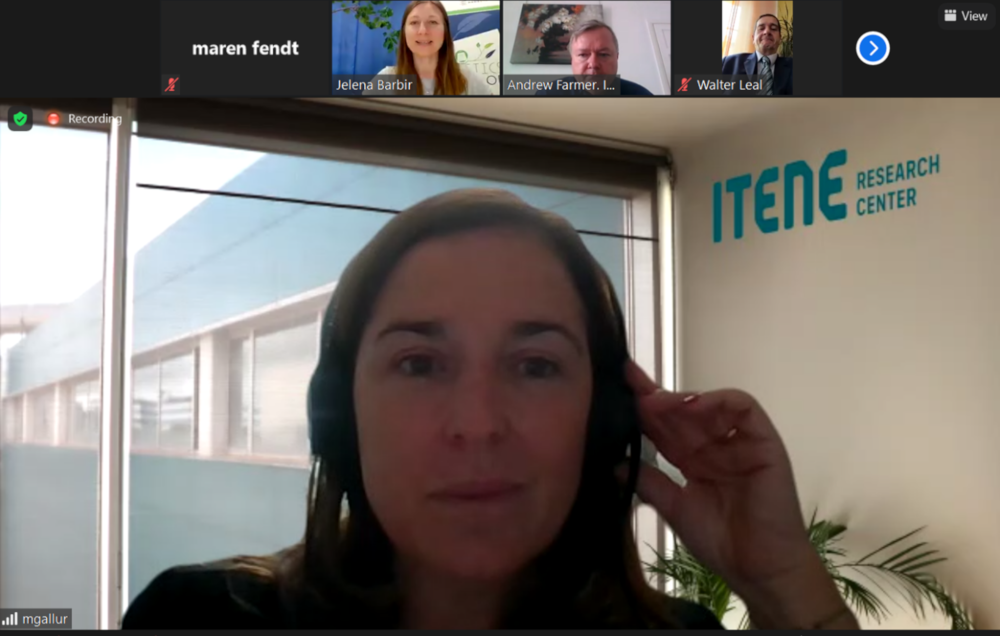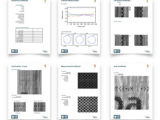
The quest for bio-based plastics: two EU research projects cooperate
July 11, 2021Since 01 July 2021, many single-use plastic products have been banned in the EU. Science believes this measure will make a major positive contribution against plastic waste in the sea. The EU is taking a further step with two research projects that are looking for alternatives to plastics – and should enable the definition of clear criteria for its biodegradability. Now the two European projects BIO-PLASTICS EUROPE, coordinated by the University of Applied Sciences (HAW) based in Hamburg/Germany, and SEALIVE, coordinated by the Instituto Tecnológico del Embalaje, Transporte y Logística (ITENE) in Valencia/Spain, have met online with EU representatives to engage in a knowledge exchange.
The topic of “Opportunities and limits of EU policy for biobased and biodegradable plastics” was the subject of an online event organized by the two EU-funded projects at the end of June. The event was attended by Dr. Silvia Maltagliati, Policy Officer of the European Commission’s Directorate General for Research & Innovation, as well as approximately 75 participants from all over Europe and the two projects.
Maltagliati provided insights into the EU research and innovation policy, referring to the definition of bio-based plastics in the EN 16575 standard and emphasizing the European Commission’s interest in promoting biodegradable plastics. She pointed out the need to develop a regulatory framework that sets clear and precise criteria for defining biodegradability and compostability. Referring to the EU Plastics Strategy 2018, she underlined the EU’s ambition to change the plastics economy in a sustainable way: “Single-use plastic products should not be produced, instead we aim for a circular economy.”
Prof. Walter Leal, BIO-PLASTICS EUROPE Coordinator at HAW in Hamburg, presented the five bio-based plastic prototypes that have been developed so far in the project and are now being tested by different project partners. He also reported on the status of the safety protocol for bio-based plastic products, which aims to ensure the safe use and end-of-life management of bio-based and biodegradable plastics. According to Leal, “This is a very concrete way to help in the fight against plastic pollution.”
The benefits of the circular economy and the difficulties that need to be overcome along the way were explained by Dr. Miriam Gallur, SEALIVE coordinator at ITENE in Valencia: “It is important to define the biodegradability aspect precisely to ultimately enable consumers to make more sustainable choices.” Dr. Andrew Farmer, SEALIVE member at the Institute for European Environmental Policy in Brussels, stressed the need for consumer information to be presented in an understandable way, which is problematic: “Recyclability and compostability are very complex and ultimately dependent on local waste management systems.” Jill Adams of the Prospex Institute in Brussels, a member of BIO-PLASTICS EUROPE, explained how stakeholders ranging from consumer organizations and environmental NGOs to municipalities and waste management companies, as well as packaging and consumer goods manufacturers, are involved in ongoing projects: “We organize regular workshops where representatives from the entire bio-based value chain are informed on the state of research and give their assessments and input.”
The European research projects BIO-PLASTICS EUROPE and SEALIVE have been cooperating since April 2021 to exploit synergies for the production and use of bio-based plastics. Both projects are developing sustainability strategies and solutions for bio-based products and thus support the EU plastics strategy. Their aim is to explore closed-loop technologies and end-of-life solutions to develop sustainable bio-based plastics which reduce waste and pollution on land and in the oceans.

